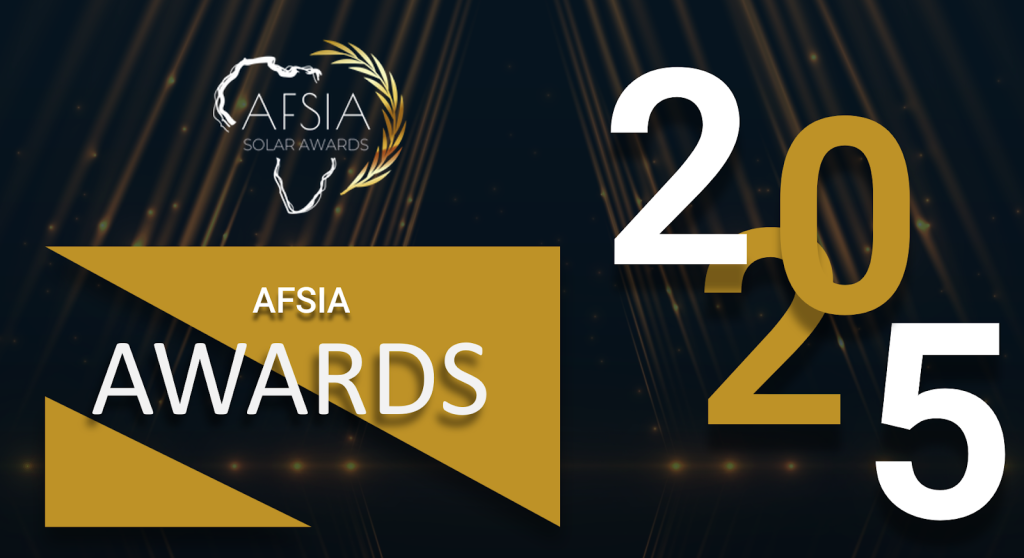Symbolic milestone of 20 GWp installed capacity passed in Africa; excellent prospects for year to come with 10+ GWp under construction

Solar continues to grow at a steady rate in Africa and now represents 20+ GWp of installed capacity
across all segments. And this milestone will be outdated very soon, as over 10 GWp are currently at
various stages of construction all over the continent. Whereas new solar installations are slowing down
in some parts of the globe, African solar continues to grow and even accelerates it growth.
In its latest solar projects database update for 2025 H1, AFSIA, the Africa Solar Industry Association, has
identified more than 20 GWp worth of operational solar capacity across the continent. The database
counts close to 40,000 different projects at various stages of development. The 20 GWp capacity
accounts for solar for utility-scale, C&I, mini-grids, SHS (Solar Home Systems). Residential projects for a
limited set of countries are now also included in AFSIA’s database.
South Africa remains the engine of the African solar industry, accounting for approximately half of all
capacity installed in the continent. North Africa also contributes greatly to the tally with Egypt, Morocco
and Tunisia completing the Top 4 of African countries hosting the most solar capacity in operation.
This domination of the southern and northern parts of the continent is likely to be maintained going
forward. In 2025, new capacity that became operational predominantly came from Southern Africa.
While South Africa continues to invest massively in solar, other Southern African countries are now
jumping on the bandwagon and have rolled out significant solar capacities in 2025 alone. These include
Zambia, Botswana, Zimbabwe and Namibia. Senegal is almost an outlier in this Southern African group
with 54 MWp new installed capacity identified YTD. In the northern part of the continent, the main push
is expected to come from Algeria. After several years of inaction, the country has indeed decided to
move forward with a whopping 3 GW initiative across 20 projects. These projects are at various stages
of construction, and several are expected to be commissioned before the end of 2025.
The other remarkable insight from the data is that African solar is on a strong growth trajectory,
whereas other regions of the world are witnessing a slowdown of new solar installations. SolarPower
Europe recently reported that it expects a solar decline of 1.4% this year, marking a negative annual
growth for this first time since 2015. In the US, SEIA reports that solar installations have declined by 7%
YoY and 43% between 2024 Q4 and 2025 Q1. Africa however keeps beating its own records year after
year, after recovering from the pandemic. Updated AFSIA figures indicate that 2024 saw a 44% increase
in new installations, further building on the 22% increase momentum from 2023. And the future holds
even greater prospects as more than 10 GWp of capacity has been identified to be under construction.
Utility-scale projects currently under construction account for 70%, marking a solid rebound from the
post-COVID years during which C&I was the predominant segment in African solar. This capacity under
construction is also more spread across the continent. South Africa remains the most active African
country, but hosts “only” 28% of the current construction activity. Algeria, Egypt, Angola, Tunisia and
Zambia are other hot spots for African solar and account for 75% of all current solar construction activity
together with South Africa.
This steady growth of solar will be at the center of discussions at REFA – the Renewable Energy Forum
Africa which is to take place in Accra on December 3 & 4. Organized by AFSIA and SolarPower Europe,
with the support of GET.invest, this investment forum is the annual meeting place for professionals of
the African renewable energy industry, covering all topics including solar, storage, electric mobility and
green hydrogen to cite a few.
About AFSIA
AFSIA is a membership-based association and companies which are members get detailed access to
market intelligence resources as well as various business support services to help them develop their
footprint in Africa and bring more solar electricity to continent.
One of AFSIA’s specialties is market intelligence about solar in Africa. Over the years, AFSIA has built a
database of more than 38,000 projects across various segments (utility-scale, C&I, mini-grids, SHS) and
various development stages (both projects in operations and under development). This database is
believed to be the most comprehensive in the industry, with each project identified individually and
sourced. Thanks to this high-level of granularity, it allows for very detailed analysis of the African solar
market and trends. This database is updated daily based on information collected from a multitude of
stakeholders of the African solar industry.